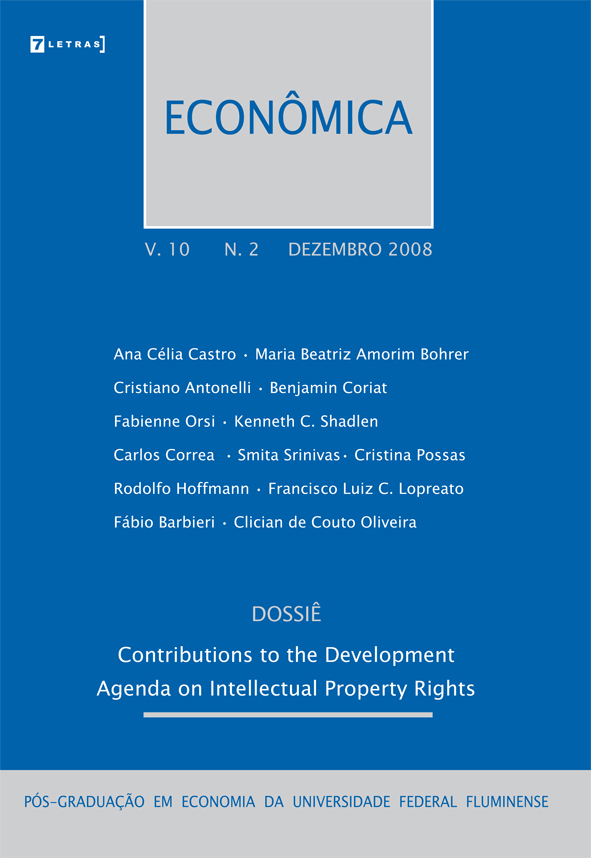Intellectual Property Rights, Innovation and Healthcare: Unanswered questions in Theory and Policy
DOI:
https://doi.org/10.22409/reuff.v10i2.34891Abstract
Intellectual property regimes are usually presumed to exert positiveinducements on technological innovation. However, given the dire nature ofaccess to critical health technologies for most of the world’s population, it isworth revisiting this assumption for health technologies. This paper situatesintellectual property rights (IPRs) for health technologies at the intersectionof three fields: innovation studies, welfare theories, and international politicaleconomy. It revisits the conceptual underpinnings of property rights with particularrelevance for needs of today’s industrializing, or so-called “developing”countries. This paper argues that the debates on IPR have poorly exploredcounterfactuals in pharmaceuticals and biotechnologies where other meansof inducement may exist and innovations may arise in conditions where IPR iseither absent or irrelevant. To do this, it first discusses utility as a basis for IPRsand the challenges –philosophical, theoretical and most importantly, practical- intranslating this to real-world use. It draws on history to analyze pharmaceuticalprior drug generations and alternate inducements. The article offers a novelconceptual framework to study innovation in developing contexts where IPR can be specifically situated. If the real goal is accessible and affordable healthcare- anissue of immense importance worldwide- then we may need to cease barking upthe wrong tree of intellectual property rights.Downloads
##submission.downloads##
Pubblicato
Fascicolo
Sezione
Licenza
Autores que publicam nesta revista concordam com os seguintes termos:
a.Autores mantém os direitos autorais e concedem à revista o direito de primeira publicação, com o trabalho simultaneamente licenciado sob a Licença Creative Commons Attribution que permite o compartilhamento do trabalho com reconhecimento da autoria e publicação inicial nesta revista.
b.Autores têm autorização para assumir contratos adicionais separadamente, para distribuição não-exclusiva da versão do trabalho publicada nesta revista (ex.: publicar em repositório institucional ou como capítulo de livro), com reconhecimento de autoria e publicação inicial nesta revista.
c.Autores têm permissão e são estimulados a publicar e distribuir seu trabalho online (ex.: em repositórios institucionais ou na sua página pessoal) a qualquer ponto antes ou durante o processo editorial, já que isso pode gerar alterações produtivas, bem como aumentar o impacto e a citação do trabalho publicado (Veja O Efeito do Acesso Livre).

